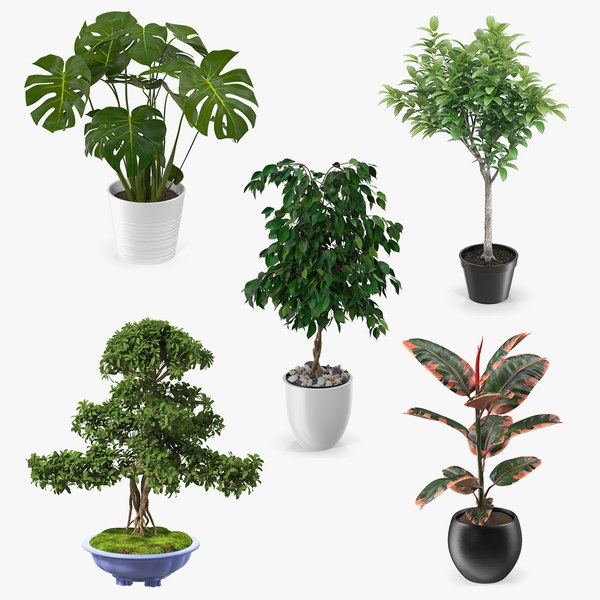As the trend of bringing the outdoors inside continues to gain popularity, tropical
houseplants have become a staple in many homes across the UK. These versatile and vibrant plants not only add a touch of greenery to indoor spaces but also offer a host of benefits for both physical and mental well-being. From improving air quality to boosting mood and productivity, tropical houseplants are a must-have for any indoor plant enthusiast.
Tropical houseplants are known for their stunning beauty and unique characteristics. From the striking leaves of the Monstera deliciosa to the vibrant flowers of the Anthurium, tropical plants add a touch of lushness and luxury to any room. Their exotic origins, with many hailing from tropical regions such as Southeast Asia, South America, and Africa, make them a captivating addition to any indoor space.

1. Light: Most tropical houseplants prefer bright, indirect light, as direct sunlight can scorch their leaves. Place your plants near a south or west-facing window where they can receive plenty of sunlight without being exposed to harsh rays.
Furthermore, tropical houseplants can enhance productivity and concentration in indoor environments. Research has demonstrated that the presence of plants in workspaces can improve focus, creativity, and cognitive function, leading to increased productivity and efficiency. By creating a more inviting and naturalistic atmosphere, tropical houseplants can help individuals feel more connected to their surroundings and motivated to work.
Formal garden designs are characterized by geometric shapes, symmetry, and structured plantings, while informal designs are more relaxed and natural, with curving pathways and mixed plantings. Contemporary garden designs often feature clean lines, minimalistic plantings, and modern materials, while traditional designs are inspired by historical gardens and feature classic elements such as topiaries, formal hedges, and statuary.
3. Humidity regulation: Many
tropical houseplants are native to humid climates, making them effective at regulating indoor humidity levels. This can be particularly beneficial during the winter months when indoor air tends to be dry due to heating systems.
4. Fertilization: Tropical houseplants benefit from regular fertilization during the growing season to promote healthy growth and vibrant foliage. Use a balanced, water-soluble fertilizer once a month or as directed on the packaging.
When choosing tropical houseplants for your indoor spaces, it is important to consider factors such as light levels, humidity, and temperature. Many tropical plants require bright, indirect light to thrive, so be sure to place them near a sunny window or invest in grow lights if natural light is limited. It is also important to provide adequate drainage and avoid overwatering, as tropical plants are susceptible to root rot if their roots are constantly sitting in water.
4. Natural decor: Tropical houseplants add a touch of nature to any room, creating a sense of tranquility and freshness. Whether placed on a windowsill, shelf, or hanging basket, these plants can enhance the aesthetics of a space and bring a pop of color to your home.
The trend of bringing the outdoors inside through the use of houseplants has been steadily growing in popularity in recent years. In particular, tropical houseplants have emerged as a popular choice for plant enthusiasts looking to add a touch of vibrancy and exotic beauty to their indoor spaces. These lush and vibrant plants not only add aesthetic appeal to a room but also offer a range of benefits for both physical and mental well-being.
Furthermore, the presence of houseplants has been linked to a range of mental health benefits, including reduced stress, improved mood, and increased productivity. The act of caring for plants can be meditative and therapeutic, providing a sense of purpose and connection to nature. In a world increasingly dominated by screens and technology, tropical houseplants offer a welcome respite and a chance to reconnect with the natural world.
3. Alocasia: Alocasia plants, also known as elephant ears, are prized for their large, arrow-shaped leaves and dramatic appearance. These tropical plants prefer high humidity and bright, indirect light, making them a great choice for a bathroom or kitchen.
While tropical houseplants are generally easy to care for, there are a few key factors to consider in order to ensure their health and vitality. First and foremost, tropical plants require sufficient light in order to thrive. While they can tolerate lower light conditions, they will grow more slowly and may not produce as many flowers or vibrant foliage. Place your tropical plants in a bright, indirect light to provide them with the energy they need to flourish.
There is a wide variety of tropical houseplants to choose from, each with its unique characteristics and care requirements. Some popular choices include the lush and tropical monstera deliciosa, the colourful and easy-to-care-for calathea, and the striking and resilient fiddle leaf fig. Whether you prefer large statement plants or small, delicate specimens, there is a tropical houseplant to suit every taste and space.